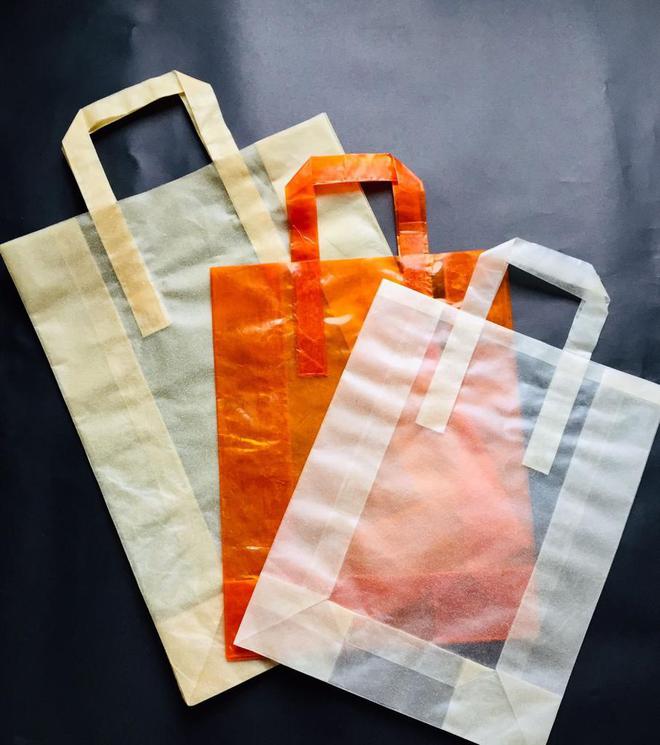Neha Jain’s professional journey has been quite a ride. From being a student of journalism, she went on to dabble with a career in Google and then found a start-up. Today, she is at the helm of Zerocircle — which crafts bio-soluble packaging from seaweed and has been in the news for bagging the Tom Ford Plastic Innovation Prize. Valued at $1.2 million (comprising a cash component and direct investment) the global competition was launched by designer Tom Ford in collaboration with non-profit Lonely Whale in 2020. It aims at finding companies who ‘source and scale marine-safe and biologically degradable alternatives to traditional thin-film plastic made from fossil fuels’. In addition to Zerocircle, which bagged second place, Sway (which came first), and Notpla (at third place), also work towards recycling seaweed in the US and UK respectively.
Taking us through the journey, Neha says it began in 2020 when her need to “not have plastic in the house” gave birth to Zerocircle. ”I realised that however hard I tried, effectively reducing one’s carbon footprint would need way more than just individual conscious consumer choices. As I researched more I learned that the products we end up using in our daily lives end up polluting our planet. Even those which were labelled ‘sustainable’ and ‘green’ weren’t really that,” says Neha.

What followed was research and several trips to the coastline of Maharashtra with leading marine biologist CRK Reddy. “I wondered if this vast reserve of seawater could be the solution. And there I found seaweed — the miraculous crop that would be the foundation on which I built my company.” Neha explains how seaweed is a rapidly growing renewable resource which makes it a more sustainable alternative to traditional plastic, derived from non-renewable fossil fuels. “It does not depend on land or freshwater or chemicals to grow.”
Exploring Mumbai’s shoreline
She learnt how different varieties of seaweed can provide unique features to our biopolymer and materials. “One of the key learnings from our research was that the properties of seaweed can vary greatly depending on factors such as the species, location, and season.” She also learned that seaweed-based materials are renewable, carbon-efficient, and regenerative, and these properties “lend to the biodegradability and composability of our products”. The initial field trips, says Neha, served as a reminder that the sourcing needs to be sustainable as well.
Also read | Degradable solution. Red seaweed promises a green alternative to plastic

Zerocircle uses different species of seaweed and “all of them have a lot to offer as materials”. “Seaweed has a better potential as a source of bioplastics due to their higher biomass, and fast rate of reproduction,” she says, adding how the material has pliability lending flexibility to their clear films. “Food paper boxes have a very thin line of coating that makes them oil-resistant. This is the hidden plastic no one talks about. Our seaweed-based coatings are recyclable and compostable.”
All factors underwent a year-long rigorous testing and reviewing by the team at Tom Ford. This included the material being immersed in a simulated (artificially created) whale gut and “they inferred that our material is ocean safe, safe for marine life, and bio-digestible”.
A peek at the production
Neha explains that the biomass is first taken from farms, where it is cultivated by hand, and then solar-dried before it reaches their facility. “Once the material comes to us, we pre-process it to remove impurities to make it food-safe. We use our patent-pending technology to process different extracts to make various products. Certain extracts go into the processing of the pellets which are then used to create the thin, clear films which are the alternative to single-use plastic packaging,” she says, adding how they work with local communities to “ensure that the farming practices are sustainable to avoid overfishing.”
As for the products, she says they will be commercially available in the market later this year. “Currently, we are working with global fashion brands in the US and the EU, and food, and home care brands to develop an optimised product for the market.” So, if you are looking at making the switch to seaweed packaging for your enterprise and wondering about the pricing, Neha says the cost of the final product will “depend on a lot of factors, for instance, the application, the industry, and the volumes. But to give an estimate, Zerocircle products will be 2.5x of traditional plastic pricing,” she adds.
And if you are wondering what to expect from the winners, Lonely Whale will soon launch an Innovation Accelerator. This, they say, is to ensure the companies ‘achieve widespread market adoption of their innovative alternatives to traditional thin-film’ and announcements are expected this month.







